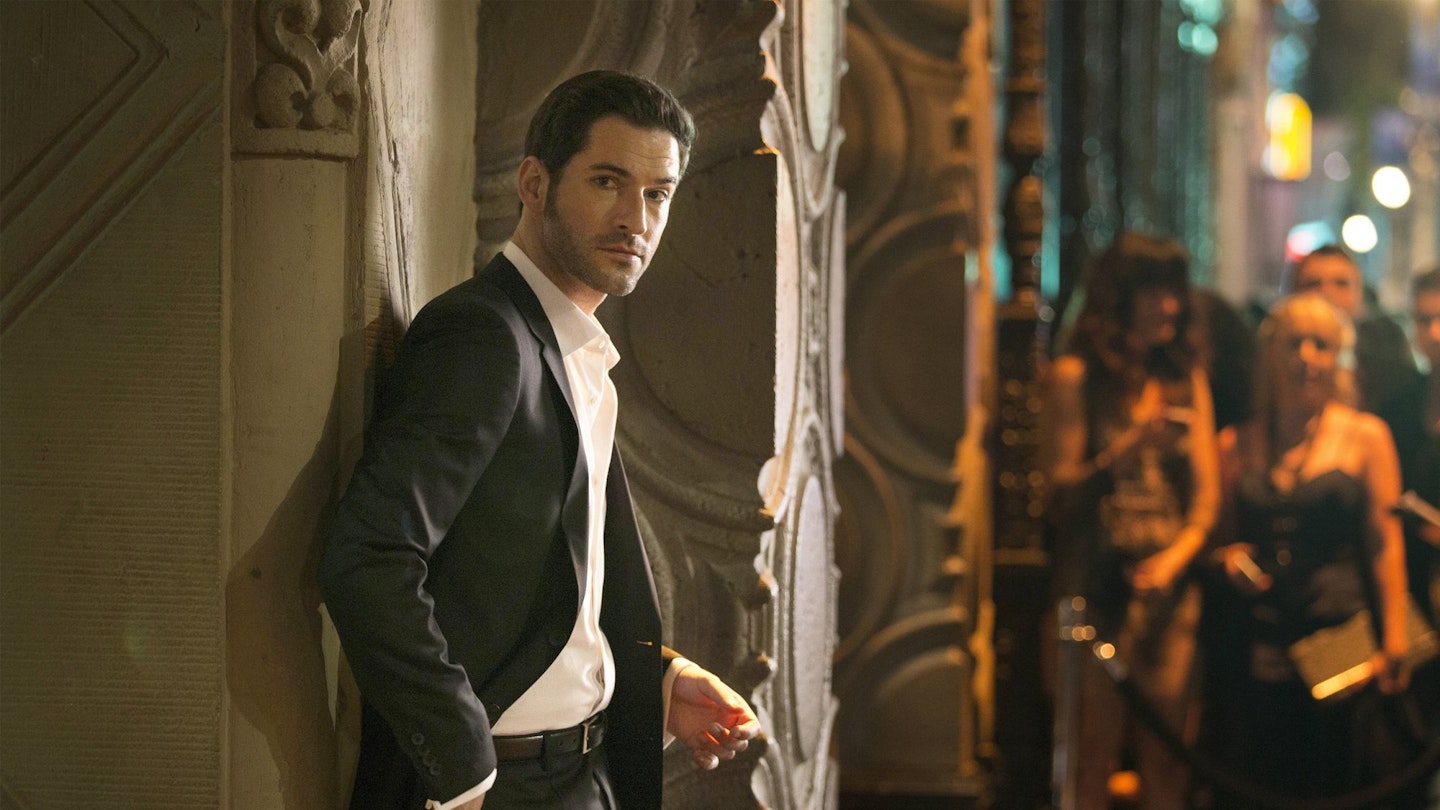One of the first lessons we're taught about the Devil is that he'll use charm rather than brimstone to get what he wants, going against the very notion of what he's supposed to represent. But then you find yourself sitting next to him, looking him in the eye, sharing a laugh, and you realize: Damn, he is charming.
Okay, before anyone calls in an exorcist, Shadowhunter, Mulder and Scully or (going old school) Kolchak, let's clarify that the Devil we're talking about in this particular instance is Tom Ellis, who isn't really the Devil. He just plays him on TV.
In the TV series Lucifer, the character of Lucifer Morningstar has decided to leave Hell behind and vacation in Los Angeles. There he opens a piano bar and, through the murder of a human friend, becomes intrigued by Detective Chloe Decker (Lauren German). He grows amused by the notion of using his "talents" to help her solve crimes while warding off the efforts of the angel Amenadiel (D.B. Woodside) to get him to return to his proper place as the ruler of the underworld.
The Welsh actor is perhaps best known for his roles as Dr. Oliver Cousins in EastEnders, Detective Sergeant Sam Speed in The Catherine Tate Show, Sam in Pulling, Gary in Miranda and the title character of Rush.
So exactly how does a guy go about becoming Lucifer?
It was pilot season last year and I'd been sent quite a few scripts. I'd basically just come off the back of doing Rush, and so I felt like I was in a slightly different position than I'd been before. I had been quite judicious about the scripts I was reading, but nothing was really taking my fancy until I pulled this script out, Lucifer. I have to say, within about three or four pages I thought it was hilarious; I laughed out loud a couple of times and knew this is the one that I wanted to do. I met Len Wiseman, who had been brought on as director, and thankfully Len and I had sort of seen the character in a very similar light. From there on basically the studio was on board and that was it, really. It was pretty seamless.
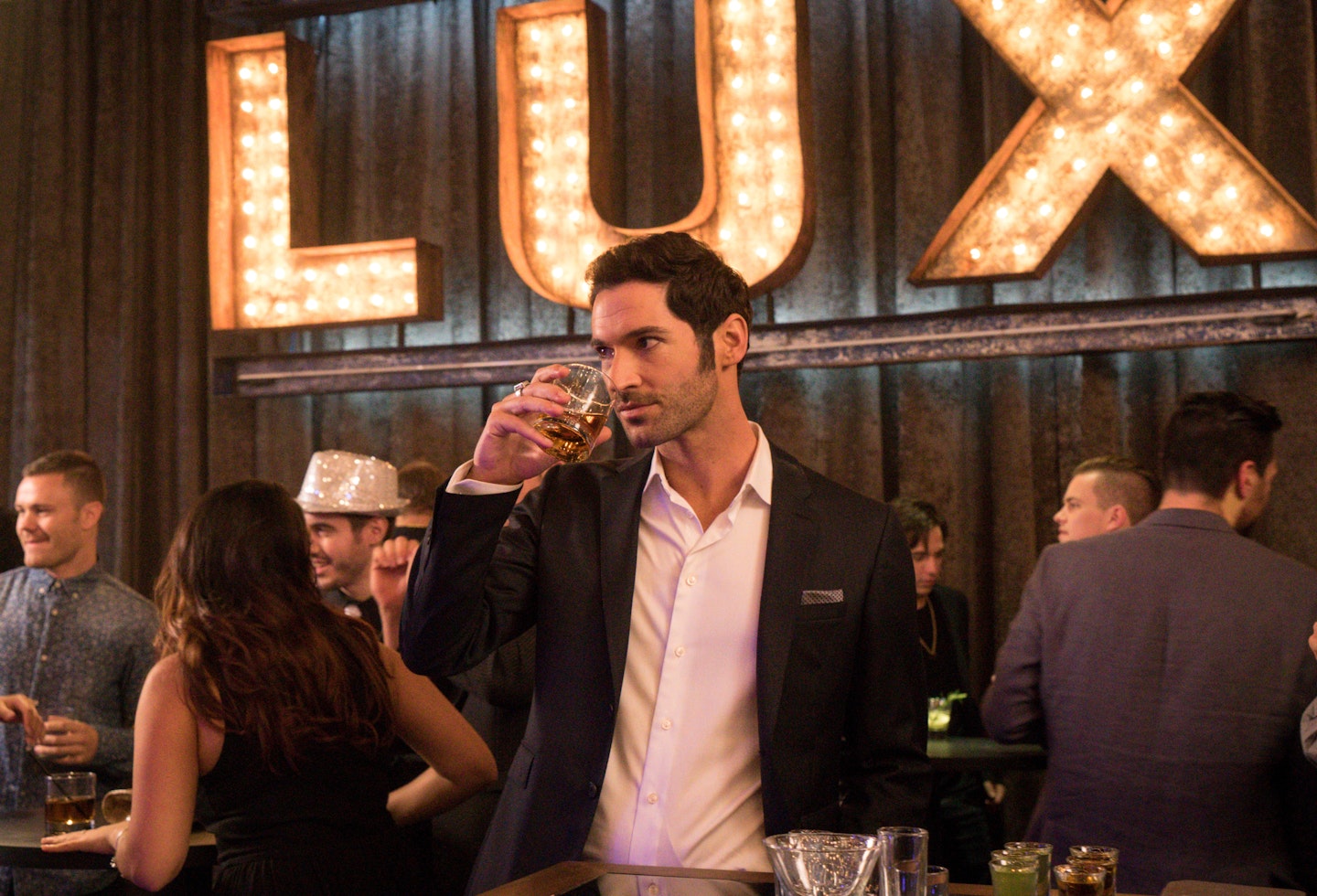
But what was it about that script that made you really want to do it?
I've worked a lot in comedy. As much as I love playing dramatic roles, it's always nice to be able to have some humor around when working. It was just different in the concept and the character was a different character to a lot of the ones I'd been reading.
Obviously he's the Devil, but how do you view Lucifer?
The interesting thing was stripping away that whole side of it. What I really wanted to do was take this character and go beneath the veneer of Lucifer. Underneath it all, there was a guy who was a hurt soul and rejected from his father. How that played upon his choices was kind of interesting, but also it's going inside a shell of someone who doesn't know what an emotion is. When he feels something, he knows he's feeling something, but he doesn't know what it is. It is just kind of a fascinating thing to take on.
When you look at an episode like "A Priest Walks Into A Bar," talk about the power of what the show can be... Lucifer bonds with a priest, a man he doesn't initially trust but ultimately ends up having faith in.
Exactly. I was so excited about that episode when I first got it. Within any first season you're trying to work out the identity of the show, what we are capable of doing in this show and how it's going to present itself. I'm pretty sure as a standalone episode it was fantastic. I think people would have been shocked to know that we were even allowed to film in a church. Thankfully, there was a church in Vancouver that let us shoot in it, because they realized the power of what the episode was. I thought that was a very gracious and understanding gesture. It took the idea of Lucifer and put him up against a genuinely good man, who really struck a chord with him. That scene when they bonded over the music in the Lux - sharing the piano - was not only the most fun I've ever had, but it was lovely stuff that you don't always get to do. Especially on TV. But it was an unspoken bond happening between them... A really interesting episode.
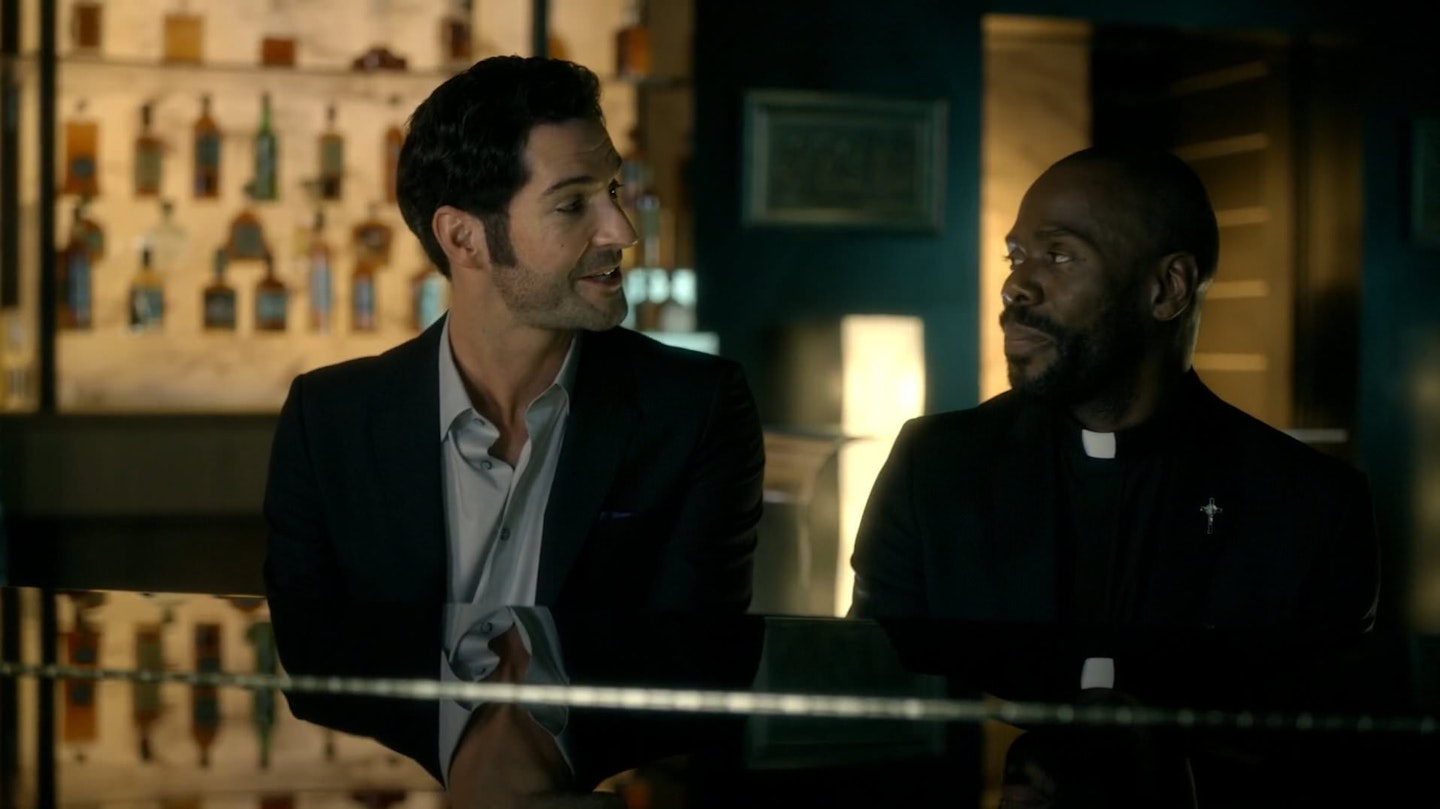
Absolutely. Real power to it, which was nice to see.
It is. Joe Henderson, our showrunner, likes to talk about the fact that what differentiates our Lucifer or our vision of the Devil is that we believe this Devil has a soul. That's what we tied in with the notion of that episode when the priest walked into the bar.
Watching the gradual transformation of Lucifer is interesting to see, but is there a danger that you can transform him too quickly? Presumably this show's designed to go several years, so it would seem you have to apply the brakes to prevent too much of a change in him.
There is that. And I think that we're all very aware that you don't want to do too much too soon in order to serve the integrity of the show and the character development. I will say that even though it may seem that way, it doesn't end that way. I'm really excited about our season finale. I understand where those thoughts might come from, but I don't worry about those things, because I think the writers have done a tremendous job.
On a personal level, how do you view good and evil? Do you see it as black and white, or more in grays?
I think it's incredibly gray. I think there's an incredible gray area about lots of things. Ultimately, most people know what right and wrong is and what good and bad is. People have to live, ultimately, with their own conscience and people's consciences are formed up by many different things; amazing experiences, and many different cultures. But I think ultimately, like I said, the majority of people in the world know what right and wrong is. I think it becomes a bit complicated when everyone was meant to believe in one thing and there's so many different groups saying you've got to believe in this thing and that thing and they're all in conflict with each other.
Most. Not all, but most.
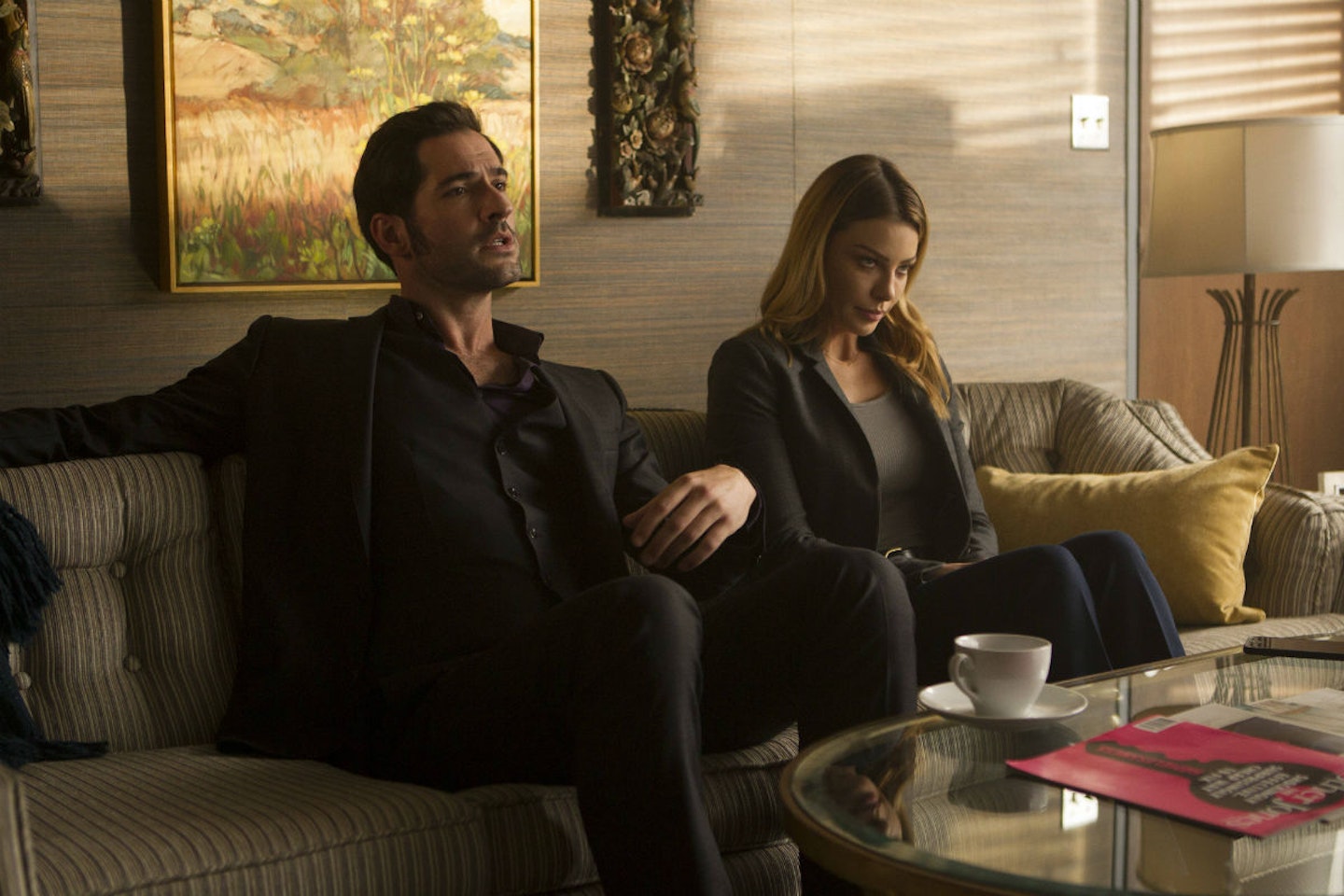
I spoke to D.B. Woodside and one of the things we realized is that as Lucifer becomes more human in a lot of ways, and embracing some of the brighter things in life, DB'S Amenadiel is going darker. He's going to some really dark places.
We're telling the story where, potentially, there's a path to redemption. At the same time, Lucifer's holier than thou divine brother, who was meant to represent all those good things about his father, is choosing to do selfish things. It's a sort of rejection of how it's not in all of us to do wrong. D.B. is such a fantastic actor, it comes across on screen in quite a lovely way.
When you look back at season one, story-wise or character-wise, what do you feel some of the strongest moments or opportunities were for you as an actor?
I think the stronger episodes, when the show is at its strongest, is when the stakes are really high for everybody. Especially for Lucifer. When we're able to take those layers away and something really means something to him, and he doesn't even know it means something to him, but it does. The episode where his wings get stolen is an episode where, all of a sudden this guy that has been skipping his way through his every experience, has something that genuinely means something to him and he can't tell people about it. So it creates conflict within him. That's what is really interesting as an actor.
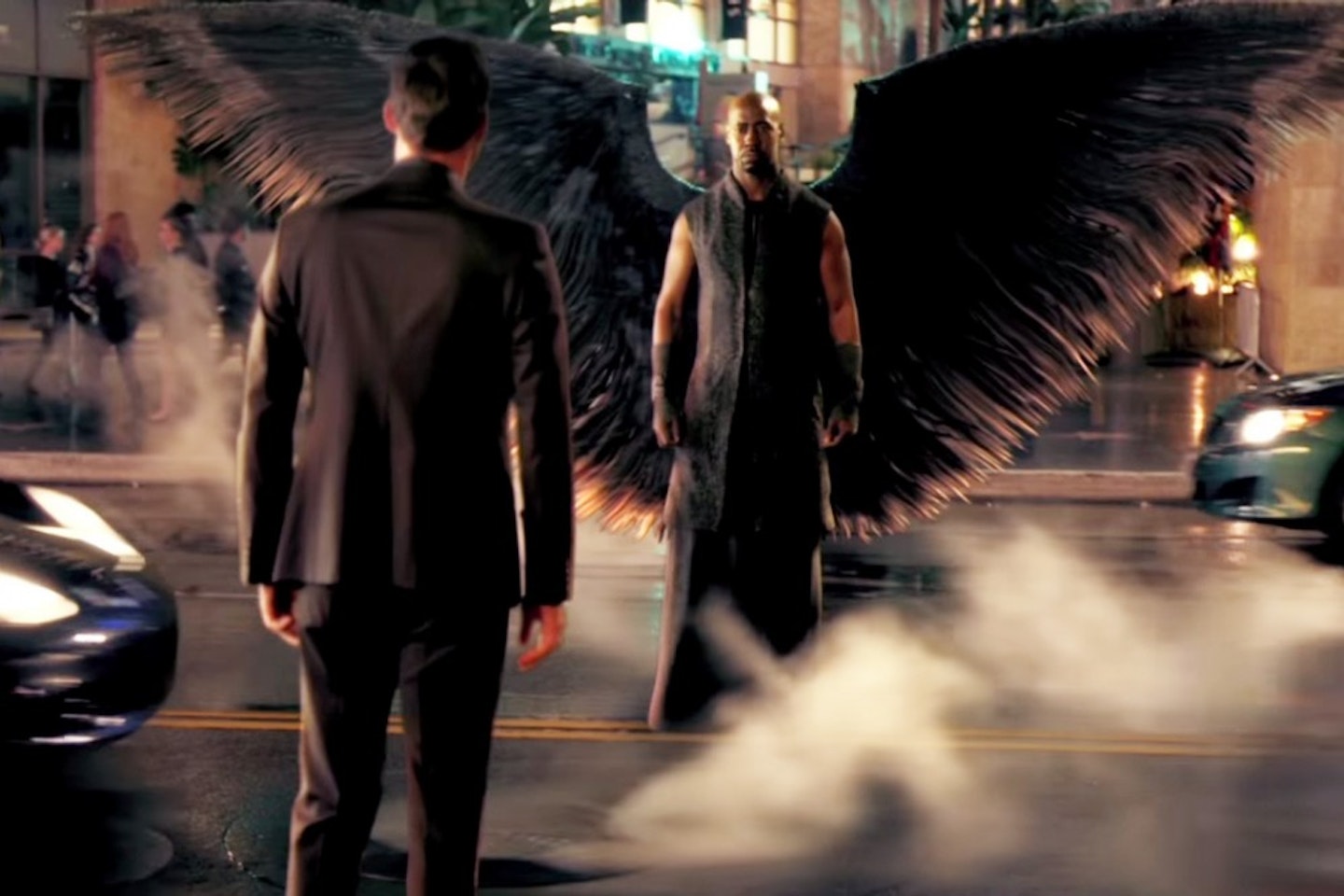
What do you feel the next step in Lucifer's evolution needs to be?
I think the notion of him not just being a selfish being and the conflict that causes within him is something we will explore in season two. For the show, it's really important that we remember that Lucifer is the Devil. It's important for Lucifer sometimes to remember that he's the Devil; to keep the notion that he is a wild animal that is seemingly being tamed, but at any moment could snap. That is important in the evolution of where we're going with it.
Not to focus too much on "A Priest Walks In To A Bar," but I think an example of that is when the priest is shot, Lucifer goes nuts and grabs the guy and hoists him up against the wall with blood in his eyes, just ready to kill the shooter.
It just rips him apart. It was great. I'm so glad that you responded to that episode, as well, because it seems like a gamble when you don't know what the show really is or how people are responding to it and what people are tapped into. It tells me that people are really following Lucifer's path, his journey, and that's really flattering. And I'd love to be able to keep that ability to surprise people. The show, at its best, can be very comedic and also, at its strongest, can just pull the rug from under you. To get that reaction is lovely.
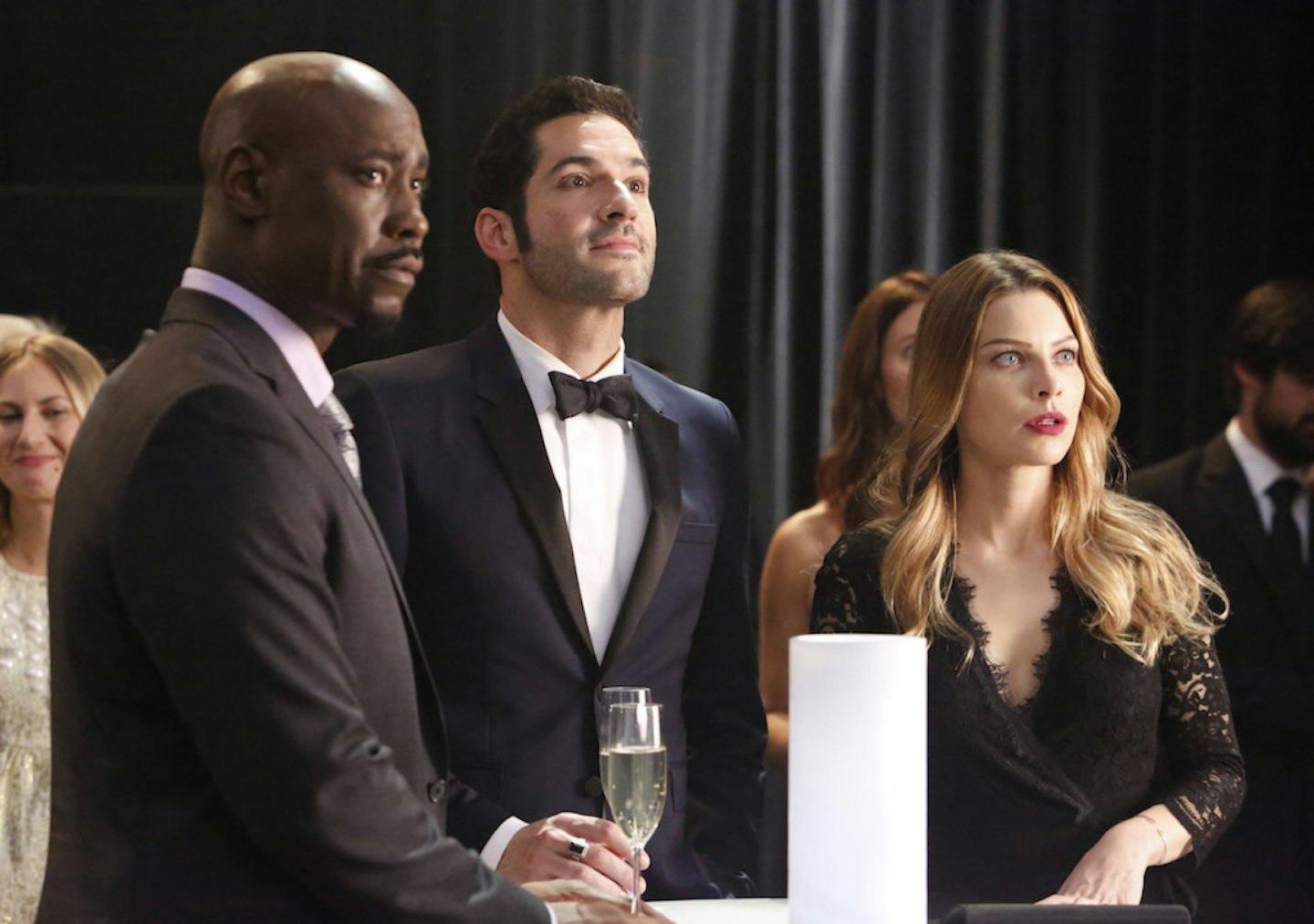
Why do you think it connects with people the way that it does?
I think there was a curiosity, to start with. Everyone in the world knows or thinks they know of the character of the Devil, or who the Devil is. Every culture's got their own thing that represents evil. There was a kind of intrigue about that to start with. The take that we're going with, the way that we're personifying this idea, is interesting to people. The heart of the show, and I really don't think it's intended to be in any way didactic or bring some sort of theological debate into play, is basically saying, "Why don't we just all take a look at ourselves and maybe take responsibility for our actions?" The world might be a better place for it.
Lucifer airs in the US on FOX and in the UK on Amazon Prime Instant Video
